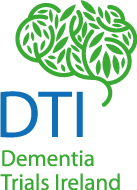
On the eve of World Alzheimer’s Day, Professor Iracema Leroi (Principal Investigator with Dementia Trials Ireland, a HRB research network to enhance dementia care and outcomes) discusses the importance of clinical trials for Alzheimer’s disease and other dementias.
On a dark November morning in 2018, I sat on an early morning train to London. The destination was an advisory board meeting on the potential roll-out of what was anticipated to be the first disease-modifying treatment for Alzheimer’s disease to receive a licence globally. As I relaxed into my seat with my coffee for the two-hour journey, I opened the Financial Times and read the devastating news that the definitive trial of this drug had “failed”. There would be no new disease-modifying treatment after all, devastating the hopes built over 20 years of painstaking research involving thousands of study participants and millions of euros.
This trial was to be the definitive one, addressing all lessons learned over the past several years, with a near perfect study design. But it was not be, and this setback for the entire dementia community led to some pharmaceutical companies dramatically scaling back their Alzheimer’s research programs. Much gnashing of teeth followed, with some suggesting that a cure for Alzheimer’s would never be found.
“Giving up is not an option.”
In the past 25 years, over 99% of clinical trials for new dementia drugs have failed. In most fields, this would cause profound nihilism. But the overwhelming need for them, and the high prevalence of Alzheimer’s disease and other dementias, demands that we in the dementia community continue seeking a solution. Giving up is not an option.
Fast forward to 2020, mid-pandemic. The USA’s Federal Drug Agency (FDA) receives an application for clinical licensing from the pharmaceutical company, Biogen, for their new drug Aducanumab. Aducanumab is one of several drugs called monoclonal antibodies which attack the abnormal proteins in the brain associated with Alzheimer’s disease. The application was based on two large clinical trials, one of which had shown a positive outcome, and another which had “failed”. Regardless, the need for a new drug for Alzheimer’s was so great that in March 2021, a licence was granted. In America, a potential disease-modifying drug for Alzheimer’s is now available. Unfortunately, much controversy surrounds the decision to licence it due to inconsistency in the data. However, that discussion is for another day.
“Research and clinical trials make a difference.”
This brings me to the point my blog – the critical importance of clinical trials for Alzheimer’s disease and other types of dementia. Our current treatments and interventions for this complex array of brain conditions is still very limited. While we talk a lot about ‘brain health’ and ‘dementia prevention’, our ability to arrest progression of dementia remains inadequate. Hence, clinical trials must continue. We need more trials, more interventions to trial, and more people volunteering to participate in trials. This is how cancer drugs have succeeded so well, and this is the only way we can more forward as a dementia community. National and regional infrastructures to support clinical trials for cancer have dramatically improved survival rates, showing that research works. Research and clinical trials make a difference. We now need to translate this energy and experience into dementia.
In the UK, about a decade ago, fewer than 1% of people with dementia were enrolled in clinical trials. Following the Prime Minister’s Dementia 2012 Challenge there was a national push to increase capacity and capability for dementia trials, which resulted in a substantial increase nationwide. What about Ireland? Today, only a few centres have conducted dementia trials, meaning that only a tiny handful of the over 60,000 people with dementia in Ireland have had the opportunity to participate in a study and access a potentially important treatment. This needs to change. Ireland must take its place at the international table of those changing the landscape for dementia treatment. That is the only way that people in Ireland will have early access to new treatments when they at last start emerging.
A national infrastructure for dementia trials
In November this year, Dementia Trials Ireland (DTI), a HRB research network to enhance dementia care and outcomes, will be launched. Funded by the Health Research Board for five years, DTI will create a national infrastructure to develop, attract and conduct dementia clinical trials across the state. Involving both lay and professional members of Ireland’s dementia community, DTI aims to significantly increase the capacity and capability to successfully undertake clinical trials across the range of stages of dementia (pre-clinical to advanced stage) and types of dementia (e.g. Alzheimer’s disease, dementia with Lewy bodies, fronto-temporal dementia, and others). DTI will support trials of all kinds, ranging from social and creative arts interventions such as dance therapy to complex drug interventions. It includes all members of the dementia community, working towards the common goal of improving the lives of Ireland’s residents at risk of or living with dementia.
While the licensing of Aducanumab has been controversial, and it’s certainly not the panacea for Alzheimer’s, it nonetheless marks a critical point on the pathway to better treatment. It has excited and galvanized the dementia community. DTI is now part of this excitement, building the future for dementia trials’ research in Ireland into the future.
About the author
Professor Iracema Leroi is Principal Investigator with Dementia Trials Ireland, a HRB research network to enhance dementia care and outcomes. A geriatric psychiatrist working with people who have developed dementia, Iracema leads the ‘Mind and Memory’ clinic at St. James’s Hospital in Dublin, which aims to support people with cognitive and behavioral complications in Parkinson’s-related conditions, including Lewy body dementia.







